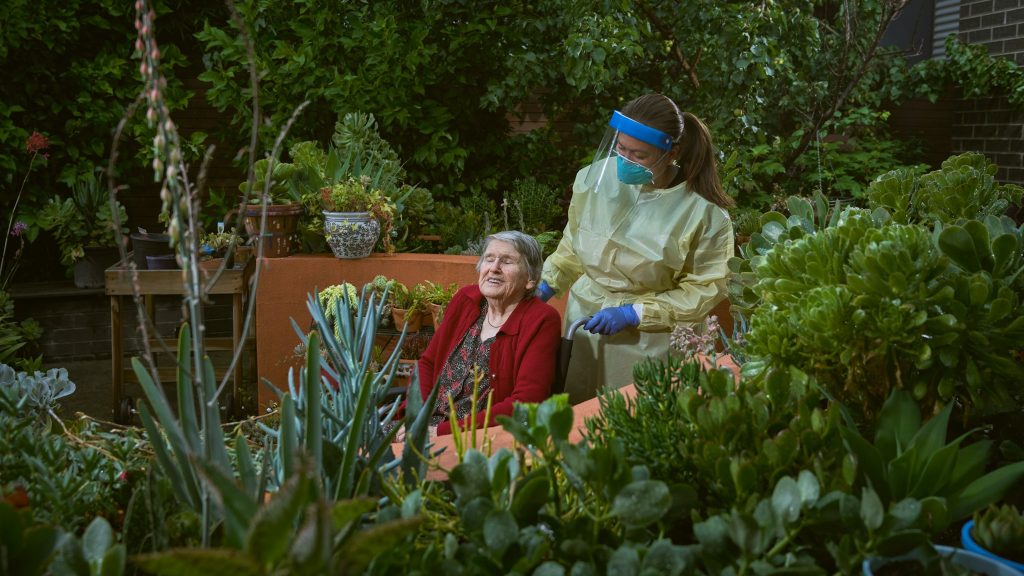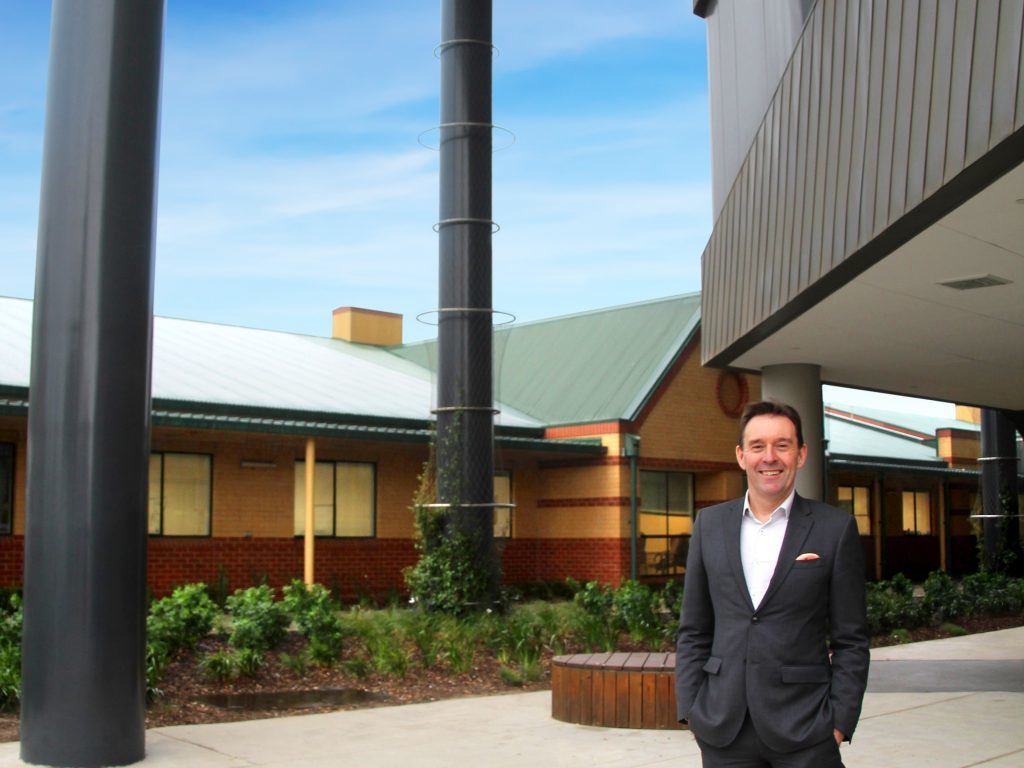Archived News Item
To truly embrace aged care reform we must reform ourselves
May 4, 2021
Our collective experiences of coming together in health and aged care, and in the community more widely to fight the pandemic, might make us feel that we are ready for anything. Surely it stands to reason that if we can deal with the sacrifices and deprivations of lockdowns and isolation, and strict infection control protocols, we are resilient enough to face generational change in aged care. Have we not all proven ourselves equal to any task.
By way of example, even before Mercy Health was required to respond to the challenges of the pandemic, we had firmly committed to the idea that the outcomes of the Royal Commission into Aged Care Quality and Safety, and the resulting policy response, would be well within our capacity to act for change. This resolve came from the changes and developments we have been leading in our hospitals, through our new programs supported by our Foundation and the list goes on. As time passes by and with the benefit of some hindsight gained through our experiences of trying to generate the right change for our own aged care homes and services, I have formed a different view about what is needed to change and the challenge for all of us at Mercy Health and across this country is greater than was originally imagined. We can change public policy, change the gears of public funding and even change the laws and regulations that help to govern for a different type and standard of aged care, but the experiences and pain of residents and clients of our aged care system, at its worst, and even in some cases, at its best, still resulted in a single-word evaluation, ‘neglect’.
The answer will not be found by dwelling in the past, but by stepping into bold, imaginative and co-creative change. If we are all courageous, we will look back on this threshold of change in decades to come and realise that we have drawn a line and crossed into a very different space as people, as communities and as a country.
But what type of change, then, could be more fundamental than deep rewriting of the governing legislative tenets and funding approach to our care.
The answer lies, not in the way we change, but in why we care at all. If we want to reform aged care (and indeed any and all care systems) to better respect the rights, the freedoms and the choices of older people, then those basic human rights need to be at the core of our reform. This is not a change we will ‘do to’ the lives of older people, it is a change to all of us, politicians, bureaucrats, carers and the entire community.
In fact, even if we change any or all of the ways in which we care, but do not change ourselves, then we will fail. Forming people as carers, and as a result, reforming the way they care, will take a shift in the way people think. Changing people’s minds is one of the most difficult challenges. It asks us to set aside habits, prejudices and ingrained ways of framing, thinking, managing and doing things built up over decades, even centuries.
Unless we change the way we care and unequivocally support carers to put the human rights of resident and client citizens at the core of why we care, we risk ending up exactly where we started before the Royal Commission. Worse still, we risk locking away older people with over-regulation, medicalisation and regimens of task-based activity with some mistaken notion of benevolence, which is really just patronising ‘busy-ness’.
A just approach is not entirely new, especially for a Christian organisation built on the tenet of valuing human dignity. Human Rights also sit at the core of the reforms that led to the fundamental changes in disability care and are the underpinning ideas that drive the existence of the National Disability Insurance Scheme. It is a promise without limitation that we will strive to uphold the rights of people with a disability. We need this in aged care too.
Several years ago Mercy Health started a journey to imagine what the future of aged care might look like. Like the aged care reforms of the past, we began with our central tenet of caring for the whole person – relational care. Call it what you will, person-centred care, whole-person care, it does not matter – we soon realised that while coming from the right place, it did not offer the guarantee of respect, protection, promotion and fulfilment that a truly rights-based approach should deliver.
After a further year of challenge there is great excitement and belief emerging in our organisation about where we have grounded our approach to rights-based aged care, but the task has not become simpler or easier – it simply has the right ethics and focus at its core.
Our challenge is not to change what we do to care, but to change the fundamental motivation and thinking about the experience of ageing. Recent conjecture about the quantum of funding or the pace of public policy reforms are critical to the future success of the aged care industry but in and of themselves they will be hollow posturing if the changes are not innovative and ethical to the core. Nothing else is acceptable if we want to reform aged care.
We are all part of an organisation that has a heritage of crossing new frontiers in care and in responding to the social needs and drawing a line under social injustices for more than a century, even longer if we consider the entire heritage of care established by Catherine McAuley the founder of the Sisters of Mercy and still longer in the whole Christian tradition.
We know that deep change is never comfortable, but if we want true reform, the kind that re-forms the way we think, it will be worthwhile. I am filled with hope and excitement at the prospect that we will look back on this year and realise that this is when we, as a sector, as a community and as a nation opened our hearts to change and we will all be better for it.
Stephen Cornelissen, Group CEO, Mercy Health.

Find out more about Mercy Health – https://www.mercyhealth.com.au
